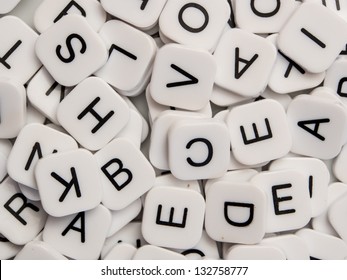English teachers love games!
I think playing games is 'the' main feature of English classes. English teachers are usually known to be more open to these activities, at least in Peru.This really helps create positive learning environment and makes it fun.
The "Give or Take Game" article shows very well how this could work for students while preparing them for an exam or even better for consolidating their learning in a fun way. In other words, for Assessment.
Fun challenges for students:
When teaching teenagers whose level of English was PreA1 level, setting challenges using the language worked very well.
I started by giving them simple tongue twisters or chants like:
"1,2,3,4. Who's that knocking on my door? 5,6,7,8. Birthday party, don't be late. For the disco disco disco dancing. Disco, disco disco dancing."
They loved it. I asked them to present it voluntarily for the following week. To my surprise, all of them wanted to perform this in front of the class. As I worked in that school for specific shifts, teachers of other subjects approached me and told me (complained to me):"Are you giving them extra points or evaluating (grading) them on this? They've been practising in my class!" I never gave them grades for this, it was just a challenge and they proved themselves they could do it.
Then, I moved to more difficult challenges and they did feel motivated all along the year. The challenge was given every week or fortnight. Some of the challenges were:
The rap part of the song "You're Welcome" by the Rock. They ALL did it! Remember they were Pre A1 level!!! Of course, they quickly moved to the following levels as their motivation was high.
Another I use was "The Fresh Prince of Bel Air rap":
I think all these activities and others should also be part of Assessment and even graded when needed. Students can self-assess or peer-assess among them too. What do you think? Also, students can be the ones challenging their classmates or even challenge themselves. Isn't life about accepting challenges? This, to me, goes beyond just learning a language.
Unscrambling
Another game I used very often is "Unscrambling words, phrases or sentences". I carry with me at least three sets of pieces of paper with one letter on each side of the paper. I make sure I repeat enough vowels and consonants to create a word for each set.
Students play in teams (3 or more depending on sets of letters you can have). There are different ways to play it like:
- Dictation for students to form the word.
- Descriptions: One person (teacher or student) describes a word studied and the others guess and form the word.
- Opposites
- Question & Answer
- I spy with my little eye...", etc...
Rules are clear for students and they do enjoy it very much. The team that finishes first and shows the word, wins. It's important to give rules on how they should present the word. It could be each student can hold no more than two letters, or stick the letters on a space on the wall. Digitally, I'm guessing they can write them on paper and show them to you very quickly on the screen.
Depending on the group, I asked students to have their own set of paper with letters so they have the chance to play on their own. As they progress in their learning, we move from words to phrases and sentences. Instead of letters on the paper, high frequency words, auxiliaries, articles, question marks, etc are written on each side of the paper.
KAHOOT!
In the current context, teachers need to adapt all of these games for distance teaching. Some maybe found online but some will need to suit their students needs, own interests and contexts. In this sense, I think tools like KAHOOT! can be really engaging and entertaining while using it for formative assessment. They have an article about it here: Kahoot as Formative Assessment
WORD SEARCH GAMES
Another way could be by creating puzzles and wordsearch games. Here a tool that can be used: The Word Search Maker
A GOOD FREE RESOURCE OF HOW LEARNING ENGLISH CAN BE FUN
I consider this website very useful and fun. I have used many of these resources for all ages and levels. Depending on level, I had follow-up activities to make it more complex.
Reflection:
In my opinion, as we all face the challenge of distance education, the MoE needs to empower teachers to keep their classes, especially assessment entertaining and meaningful using IT tools so they can really meet their students' needs, interests and contexts.
The first step, might be to just use ONE tool they can feel confident with and master it. Fear for failure may stop some teachers from trying and maybe that is why they expect to find already-made activities to meet their students' specific characteristics but this rarely happens.
Other resources:
Other resources:



No comments:
Post a Comment